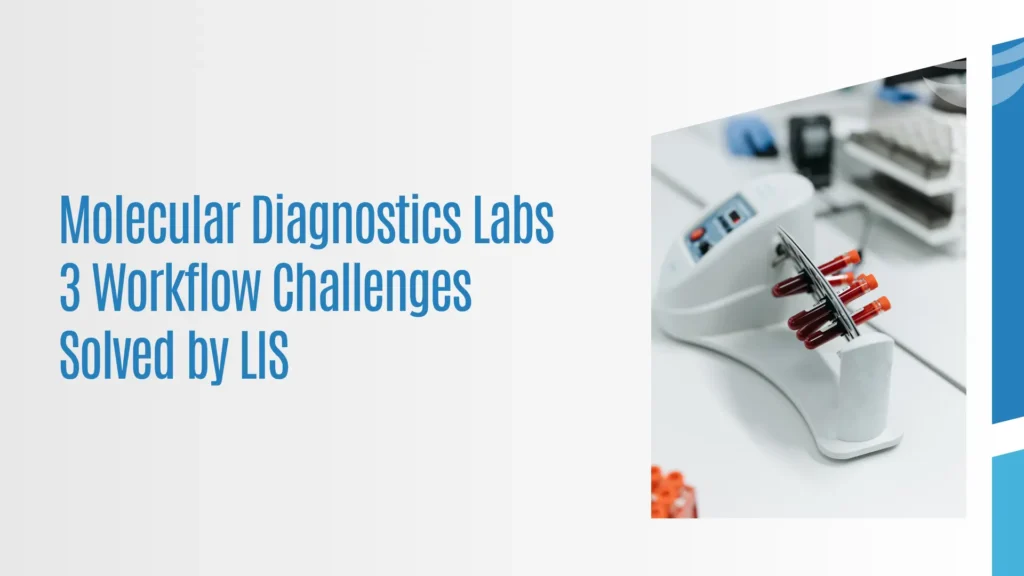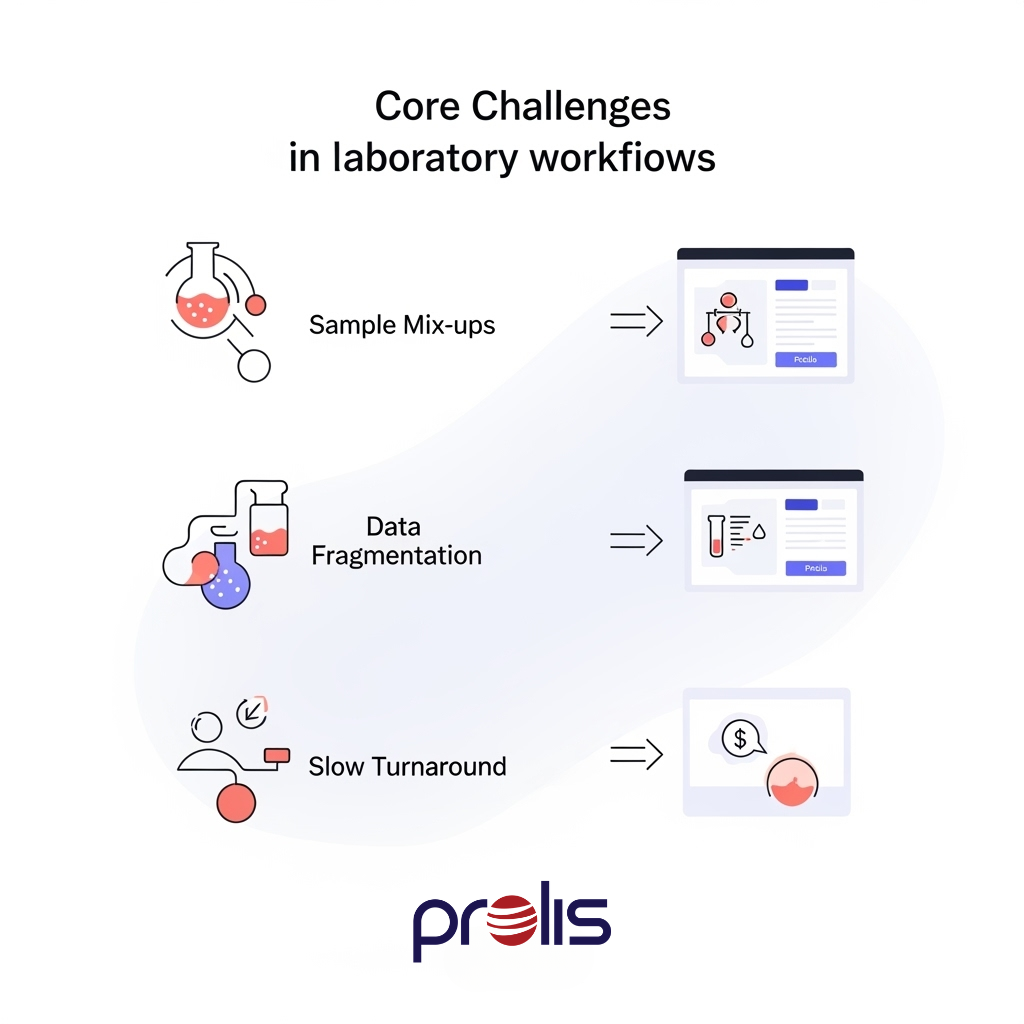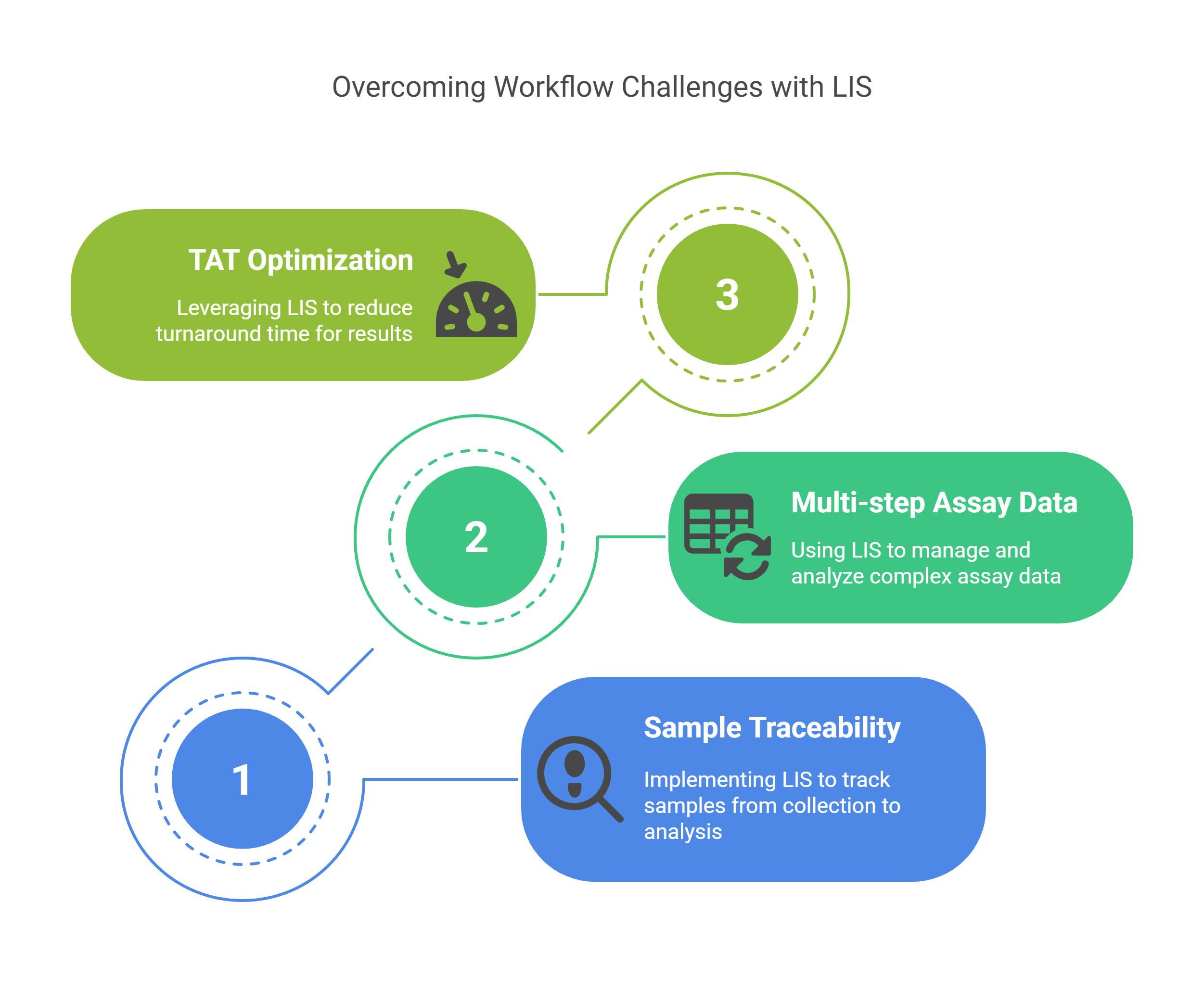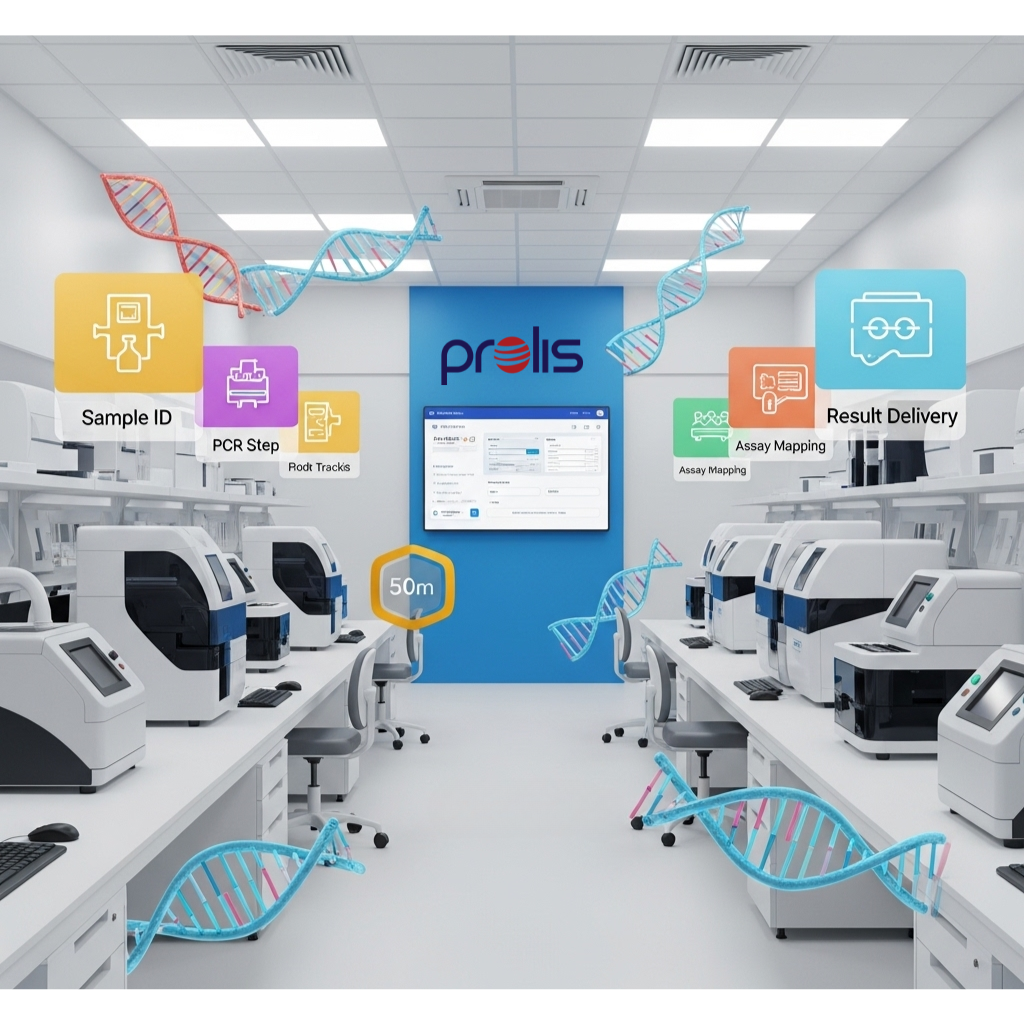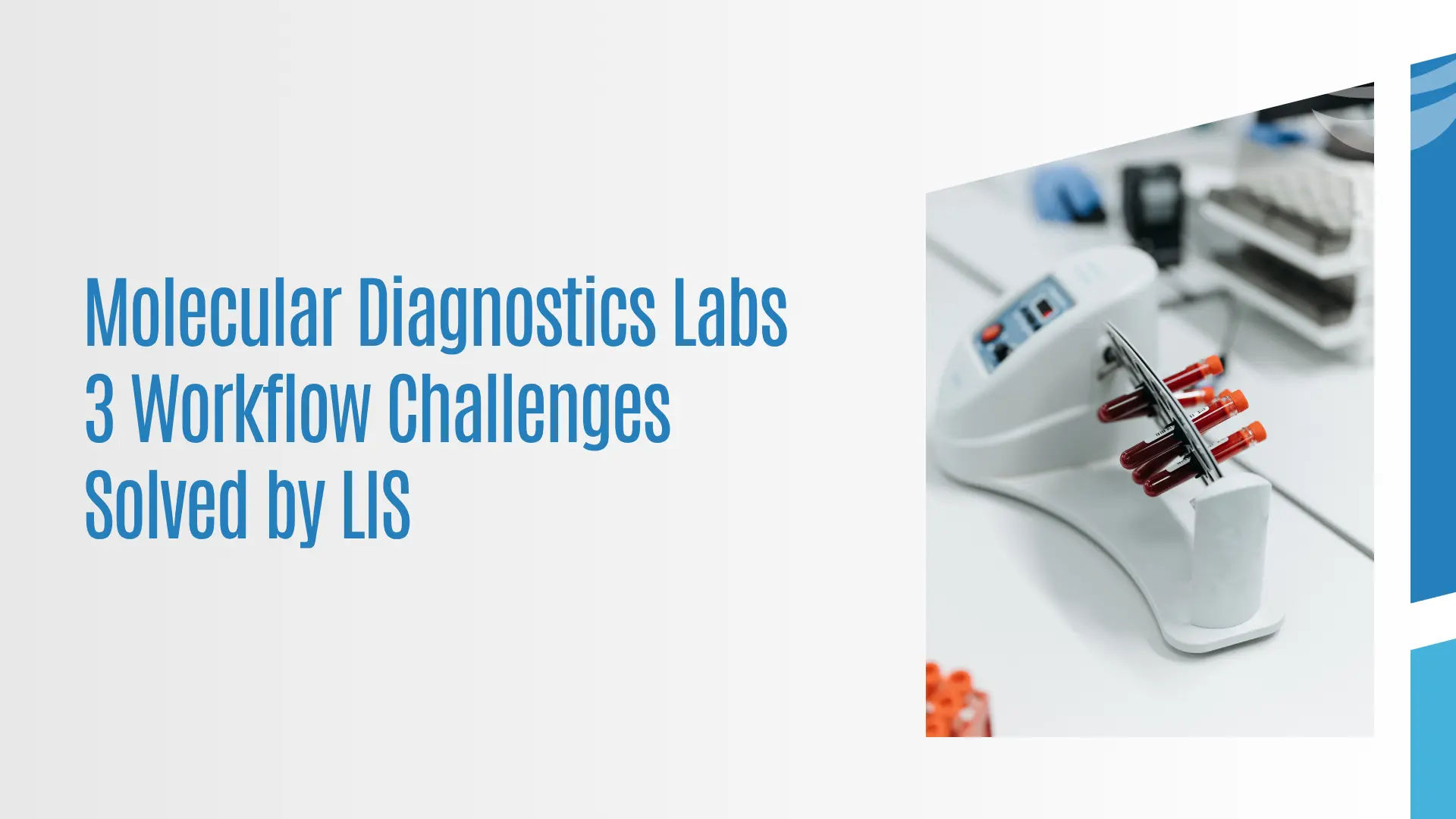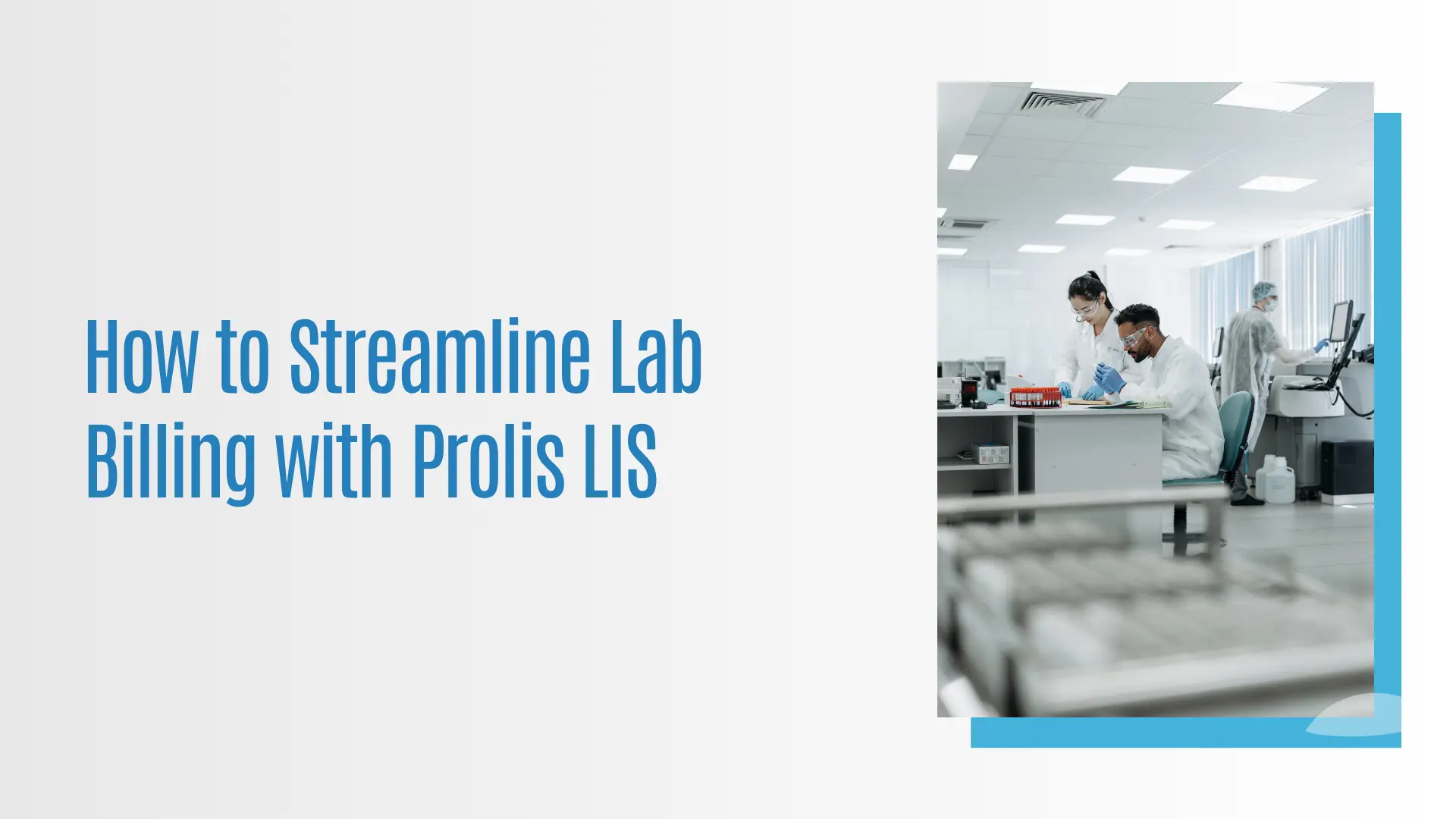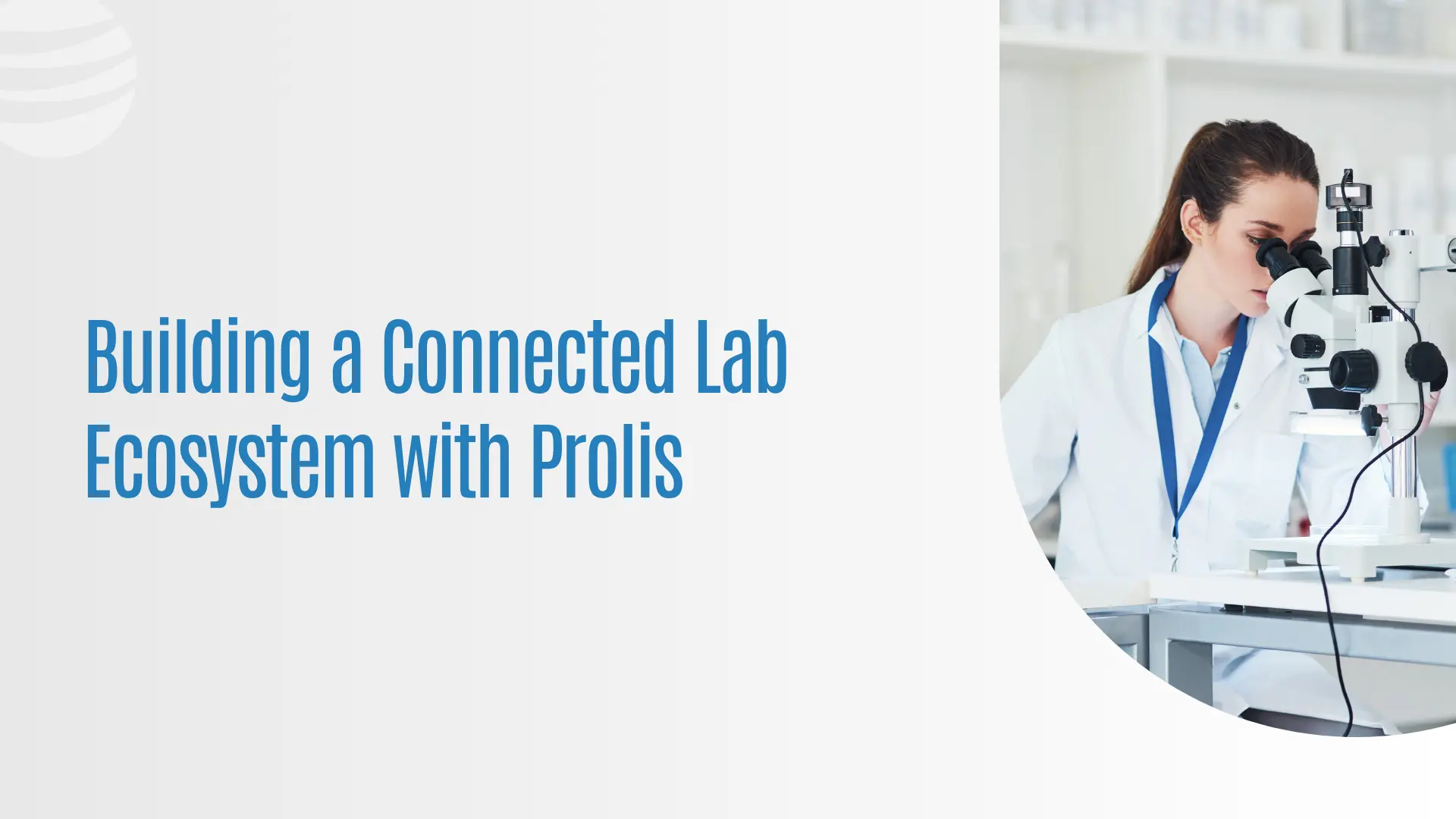Molecular Diagnostics Labs: 3 Workflow Challenges Solved by LIS
The Growing Complexity of Molecular Lab Workflows
Molecular diagnostics labs operate at the intersection of innovation and precision. Whether processing qPCR tests, genetic panels, or high-throughput sequencing, these labs face extreme demands for traceability, accuracy, and speed. And as test volumes increase, so does the complexity of managing them.
Traditional LIS platforms often fall short in handling this level of complexity. Molecular workflows are multi-phase, data-heavy, and non-linear. Without the right Laboratory Information System (LIS), errors creep in, results slow down, and staff become overwhelmed.
The solution isn’t more people or more spreadsheets. It’s a system that is built to manage the molecular journey from sample to result with structure, speed, and transparency.
1. Challenge: Sample Traceability in High-Volume PCR and Genetic Testing
In molecular diagnostics, sample mix-ups are not minor mistakes. They can lead to misdiagnosis, delayed treatment, and compliance violations. With hundreds of samples flowing through DNA extraction, amplification, and analysis steps often in multiplexed batches clear traceability is non-negotiable.
Without an LIS tailored to molecular workflows, labs rely on siloed spreadsheets, handwritten logs, or disconnected LIS tools that don’t link back to the patient or ordering provider.
How a LIS Helps:
-
- Unique barcoding and accessioning at intake
- Real-time sample status across phases
- Batch tracking with individual sample lineage
- Full audit trails for every interaction
With Prolis, every tube is linked to every action from accessioning to reporting.
2. Challenge: Managing Complex Data Across Multi-Step Assays
Molecular diagnostics isn’t just about running a test. It’s about managing data across multiple instruments, platforms, and review cycles. A single molecular workflow might involve:
-
- Sample prep
- qPCR instrumentation
- Software-based analysis
- Secondary confirmation
- Manual review and interpretation
Each phase generates data, and without a centralized system, labs end up piecing together results from multiple platforms slowing down TAT and increasing the risk of error.
How a LIS Helps:
-
- Centralized result collation from all instruments
- Middleware-free data mapping
- Built-in quality checkpoints before final release
- Secure attachments of raw and interpreted results to the patient record
With Prolis, molecular labs don’t just move data they manage it with precision.
3. Challenge: Turnaround Time Pressure from Providers and Patients
In the post-pandemic world, expectations for molecular diagnostics have changed. Providers want faster results. Patients expect same-day answers. Payors demand clean claims tied to verified data.
But without automation and integration, labs spend more time compiling results than releasing them. This bottleneck adds hours to each test, creates staff fatigue, and slows down revenue.
How a LIS Helps:
-
- Automated result routing to EMRs and portals
- Alert triggers for abnormal or delayed tests
- Batch validation and bulk release functionality
- E-signature capture and auto-report delivery
Prolis turns complex molecular workflows into efficient clinical outputs.
How a Molecular-Ready LIS Like Prolis Solves These
Prolis is not a generic LIS that tries to force molecular labs into static workflows. It is configurable, integrated, and designed with complex diagnostics in mind.
Key Prolis Capabilities for Molecular Labs:
- Integrated PCR tracking: Connect qPCR outputs to patient results, automatically.
- Data-rich result handling: Link interpretation notes, attachments, and instrument output.
- Custom panels: Define genetic or molecular panels with flexible result structures.
- Workflow staging: Track every step, from prep to review, with timestamps.
- EHR and analyzer integration: Eliminate duplicate entry, boost TAT.
- Regulatory audit support: Full logs of who did what, when, and why.
With Prolis, molecular diagnostics isn’t an edge case. It’s a built-in strength.
Precision Needs Process, Not Just Equipment
Molecular labs invest heavily in instruments and assays but the true differentiator is workflow. The labs that scale, perform, and grow are the ones that treat their LIS not as a database, but as a workflow engine.
Prolis was built to serve high-complexity labs. Whether you’re running qPCR, NGS panels, or rare disease testing, Prolis gives your lab the structure to match your science.
Want to see how Prolis handles molecular workflows in action? 👉 Schedule a walkthrough today →

